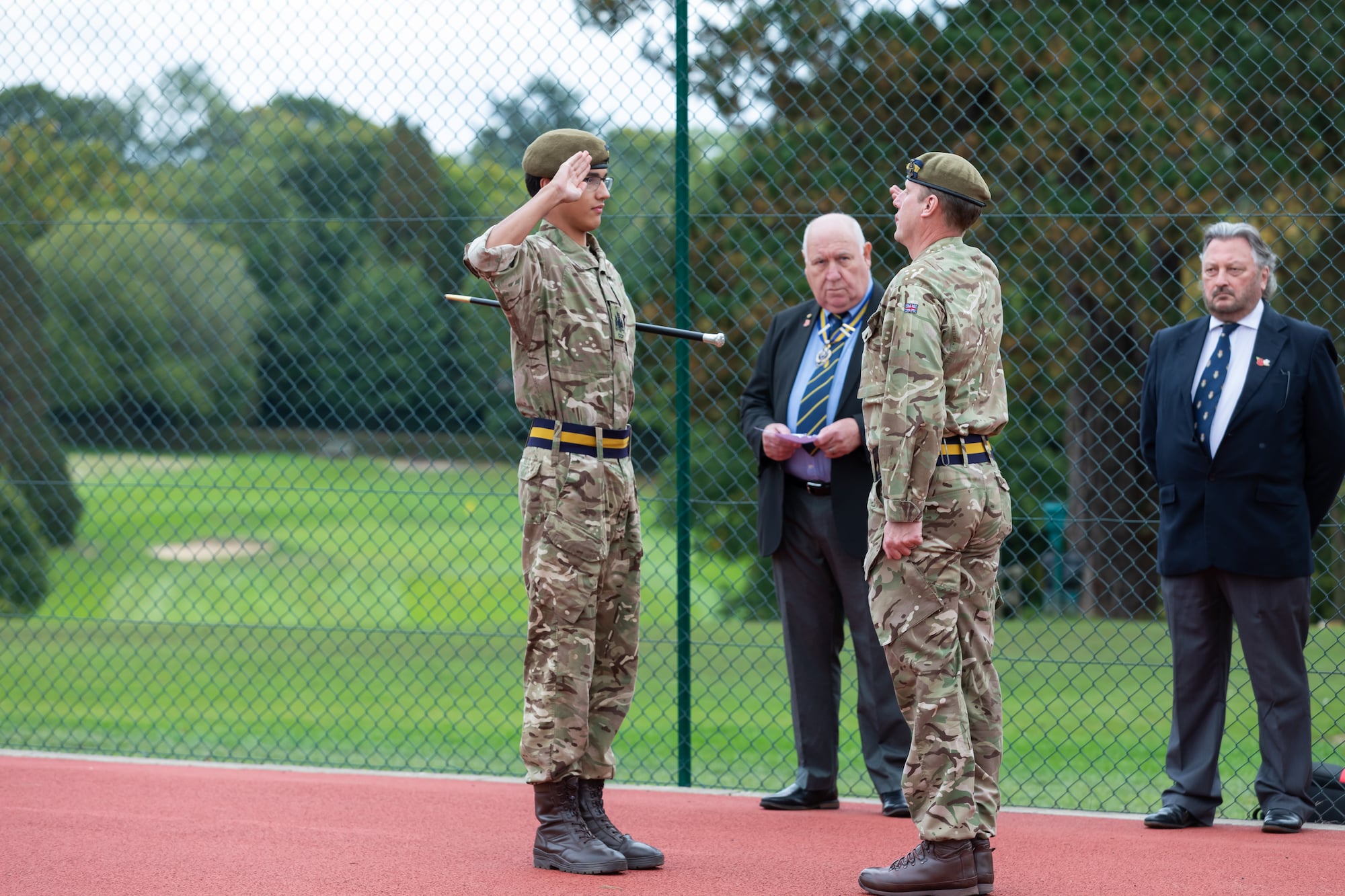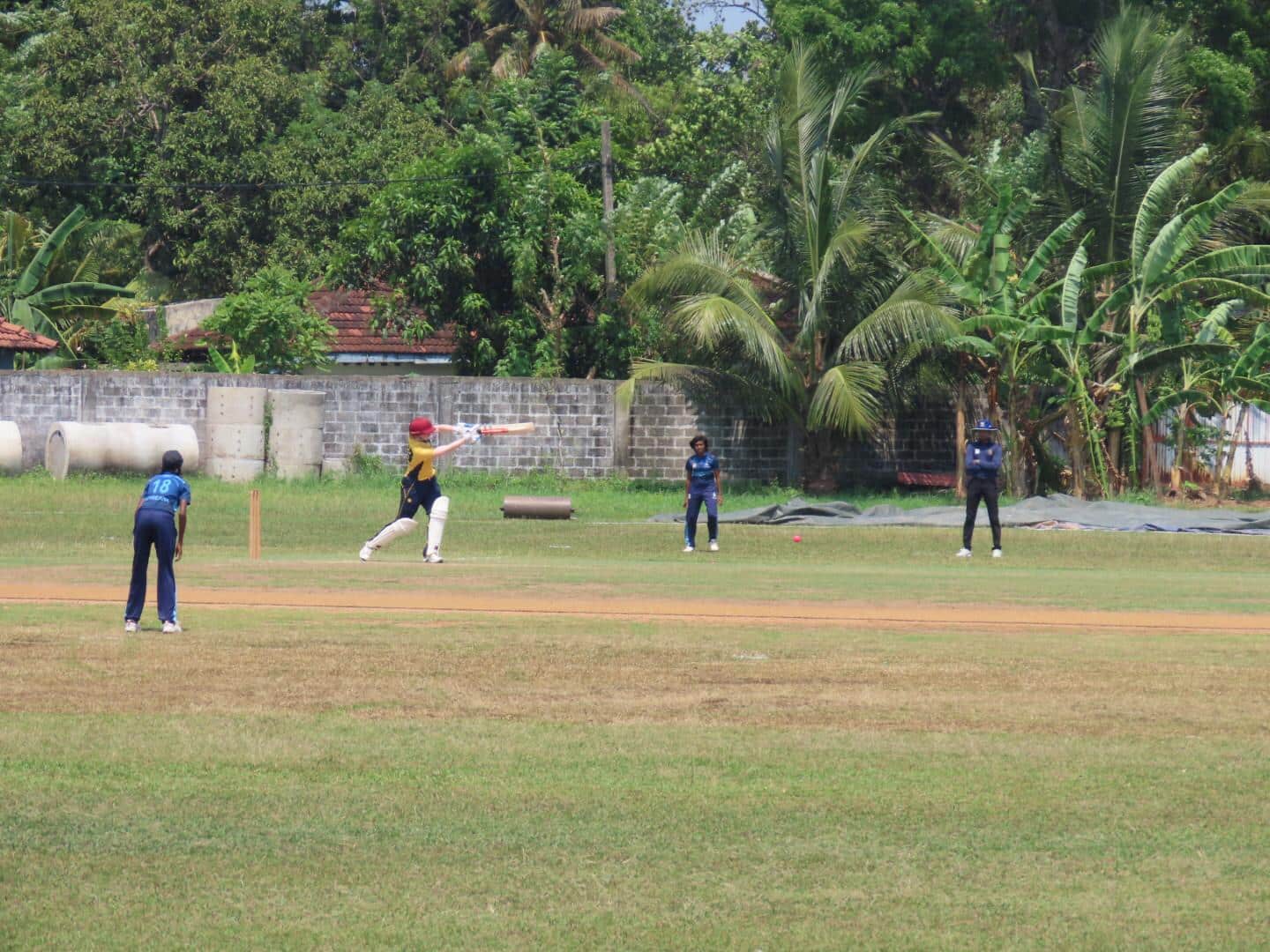 The War Studies Society Michaelmas term lecture was delivered to a three-quarters full Academic Lecture Theatre on Friday 4th October by Major James Greaves, Grenadier Guards. The eighty or so pupils who gave their time to attend were not disappointed as this seasoned infantry commander, a veteran of three Afghanistan tours and one Iraq tour of duty, expounded not just upon his own experiences, but on the theme of leadership. Asking the audience at the outset who thought they had the capability for leadership, he was answered by a few arms going up, but he was adamant in his response: “All of you have the capability to be leaders.” He asked Jim Harrison why he aspired to leadership, and seized upon Jim’s answer: “To help people! Absolutely right!” Leadership, he asserted, was about humility. Don’t boast. Look after your team, do your job well, other people will sing your praises for you. It is not about bossing people around or controlling them, but about “giving subordinates the opportunity to express themselves, and to prove themselves. Give them the chance to be judged by you, and they won’t let you down.”
The War Studies Society Michaelmas term lecture was delivered to a three-quarters full Academic Lecture Theatre on Friday 4th October by Major James Greaves, Grenadier Guards. The eighty or so pupils who gave their time to attend were not disappointed as this seasoned infantry commander, a veteran of three Afghanistan tours and one Iraq tour of duty, expounded not just upon his own experiences, but on the theme of leadership. Asking the audience at the outset who thought they had the capability for leadership, he was answered by a few arms going up, but he was adamant in his response: “All of you have the capability to be leaders.” He asked Jim Harrison why he aspired to leadership, and seized upon Jim’s answer: “To help people! Absolutely right!” Leadership, he asserted, was about humility. Don’t boast. Look after your team, do your job well, other people will sing your praises for you. It is not about bossing people around or controlling them, but about “giving subordinates the opportunity to express themselves, and to prove themselves. Give them the chance to be judged by you, and they won’t let you down.”
He elaborated on the complex and ambiguous dynamics of counter-insurgency warfare in Afghanistan, explaining that this was not about brute force, but about influence and persuasion; not about capturing physical ground, but about capturing loyalty. He made its manifold challenges abundantly clear, by employing a simple illustration: “Imagine if two hundred heavily armed Chinese soldiers arrived in Cranleigh, based themselves in the school, started to ask everyone questions about what was what in the local area, started to lay down the law to the parish council and the school board of governors… How would you feel about that?” He pointed to a slide of himself and other British officers lunching with their Afghan counterparts. “The man on the right fought for the Russians in the 1980s, the man on the left fought for the Mujahideen. They were bitter enemies. They speak different languages. Now they have to work together, with us.” Relations, even with trusted allies, could be tricky: “Britain and America are two countries separated by a common language. The American mentality is different. Their morality is black and white. That man there” – he indicated a bearded US Special Forces officer – “genuinely believed that the whole world ought to be turned into something resembling America.”
The more direct challenges facing British troops were laid bare. The terrain is tough, much of it comprising of thick crop fields in which visibility shrinks to a few yards. “That position,” he said, pointing at a slide of a soldier peering over a parapet into dense maize stems, “was grenaded an hour after this photo was taken, by a Taleban fighter who crawled to within three metres.” Helicopters are often the only realistic means of mobility, given the complex ground and the constant threat of Improvised Explosive Devices. Few foot patrols pass off without a “contact” – Army jargon for a firefight with the enemy.
There were plenty of film clips that ranged from combat footage to montages of life in the forward operations bases, the like of which Major Greaves himself recently commanded. Grief, fear and fatigue were evident; but so too were courage, comradeship, and the roguish humour for which British soldiers are so rightly famed: “They’re from very different backgrounds to you, but they too aspire to do their very best by themselves, and to justify the faith that you, as their leader, put in them”.
At the end, there was time for questions. Was the army making a difference to people’s lives, he was asked. It was, he reckoned, by tangible measures at a local level, though he was sceptical on the long-run prospects for Afghanistan. He said of an Afghan policeman he strongly admired, “I hope he’ll survive after we’re gone.” Were they winning? Dragging a country from the dark ages into the twenty-first century was no easy feat, he admitted, but a picture of veiled women jostling to vote for the first time spoke volumes for some of the hard won achievements of the NATO coalition. Had he served alongside female soldiers? Yes, and not only that, but he praised their professionalism and courage, citing in particular artillery observers and medics. And the role of animals in this conflict? They are used by the enemy as transport – camels and mules – and are crucial as explosives sniffer dogs for the coalition forces. The Army also employs vets, partly to assist local Afghans with their livestock – a quick means of building trust.
He summed up by re-emphasising his core message: “Leadership is the same in any walk of life, be it the military, business, the professions, sport, family and community life… Every single one of you has what it takes to be a leader, so don’t be shy. Push yourself forward; you’ll be amazed at what you’re capable of.”
TGL
Back to all news











